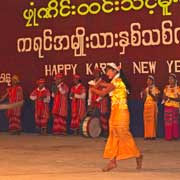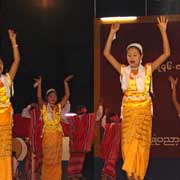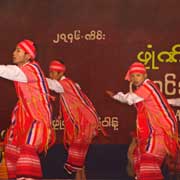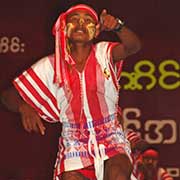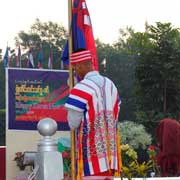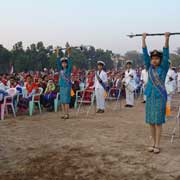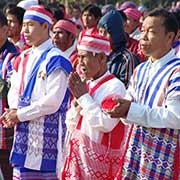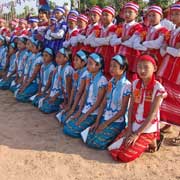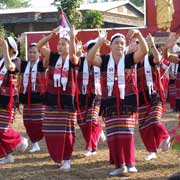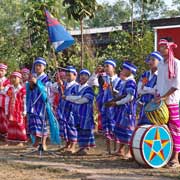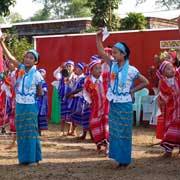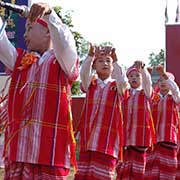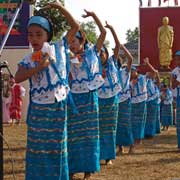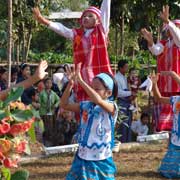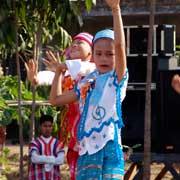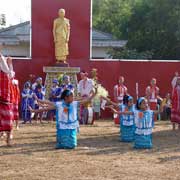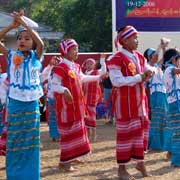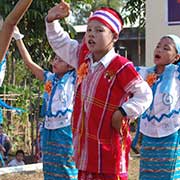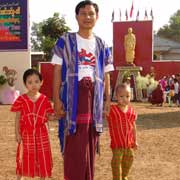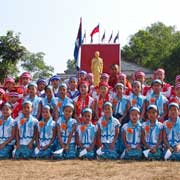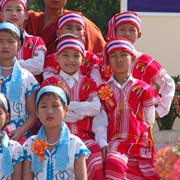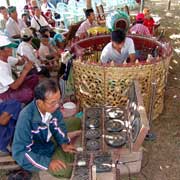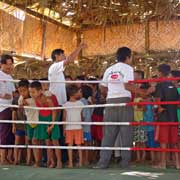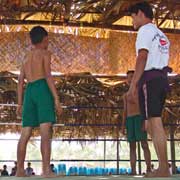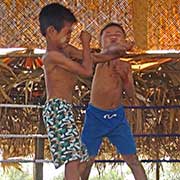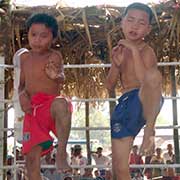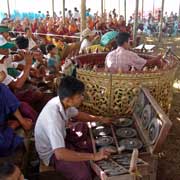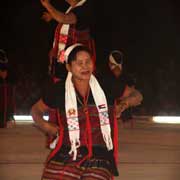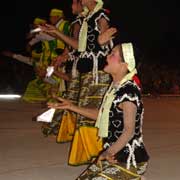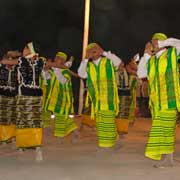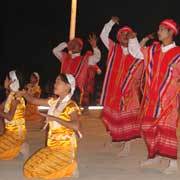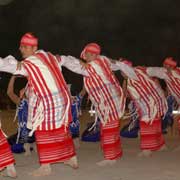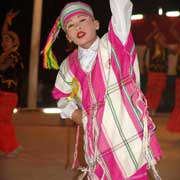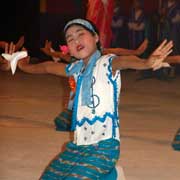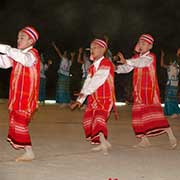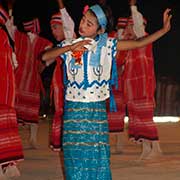Photos of Karen New Year Celebrations, Myanmar
Karen New Year Celebrations
The Karen or Kayin people are an ethnic group speaking a Sino-Tibetan language and numbering around 7 million people, approximately 7% of the total population of Myanmar and its third biggest ethnic population, after Bamar and Shan. They live mainly in Kayin (formerly Karen) State, and because of the war, waged by the Karen National Union (KNU) against the central government, there is a large number of Karen in Thailand, close to the border. The KNU, who did not sign the Panglong Agreement of 1948 and demanded total independence covering what is today Kayin State and other regions where their people live; today it forms the world's longest running resistance.
you may then send it as a postcard if you wish.
Karen New Year was first celebrated in 1938 and is therefore a fairly recent celebration. It falls on the first day of the month of Pyathoe, the month at the end of the rice harvest; according to Karen tradition, there should be celebrations for consumption of the new rice crop. It is a celebration for all Karens, Buddhists and Christians, and includes speeches, singing and "Don" dances, while the distinct flag of the Karen, the flag of Kawthoolei (the state they have been trying to establish since the late 1940s) is displayed prominently.
"Don" (meaning "to be in agreement") dancing originated with the Pwo Karen, one of the Karen groups, who developed it as a way to reinforce community values. A song would be composed by a man called "don koh", maybe criticising someone's conduct and affirming the community's moral standards and this song would be sung by all while dancing. Over the years the pace of the dance has increased and the songs may be expressions of pride in Karen culture and their aspirations, sung by men and women who move in two lines, with great energy, the two lines moving, mirroring each other, moving through each other; the dance may last up to fifteen minutes. It is accompanied by a small group of musicians, including the "g'weh", a small horn, and drums. Children perform with the same enthusiasm and energy, vigorously maintaining their cultural heritage.



